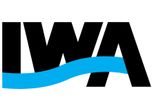Smart Meters | Environmental XPRT
Articles & Whitepapers
-
Why is Monitoring Water Level Important
Imagine a day without water. No morning showers, no coffee to kickstart your day and no flushing toilets - a situation most of us would find inconceivable. Yet, this seemingly abundant resource, critical to our daily routines and overall quality of life, is dwindling at an alarming rate. The truth is, while water may flow freely from our taps, maintaining that flow is becoming an increasingly ...
-
Why are smart meters considered an important component of the energy Internet
Smart meters, as an important component of the energy Internet, play an increasingly crucial role and position in the current energy system. This judgment is based on the unique functions of smart ...
News
-
The installed base of smart parking sensors to reach 3.2 million units in 2028
Berg Insight today released new findings about the smart parking market. Excluding China, the global installed base of wirelessly connected in-ground and surface-mounted parking sensors reached an estimated 1.3 million devices worldwide at the end ...
Water digitalisation & planning, challenges for the sector to foster a development cascade effect
2024: Bold, technological action on water efficiency urgently needed
Protecting the planet: The technological trends shaping water management in 2024
Lesira-Teq and Comsol partner to manage LoRaWAN network for smart water meters
Equipment & Solutions
-
Showcase
Laser Level Meter
OSI's patented Laser Level Meter (LLM) is a compact industrial sensor that utilizes an infrared laser and advanced micro-processor to measure levels in in industrial storage tanks, large commercial process bins and agricultural silos. The LLM-100 uses an eye safe pulsed infrared laser and measures distance using time of flight of a very narrow laser pulse. The sensor uses a very sensitive ...
Upcoming Events
-
Showcase
IWA World Water Congress & Exhibition 2024
The IWA World Water Congress & Exhibition brings together stakeholders and key contacts within the conventional water sector and beyond. It brings together core water sector groups, such as those focused on urban water and urban water services, as well as participants from industry and agriculture, architects and urban planners, soil and groundwater experts and hydrologists, social ...












